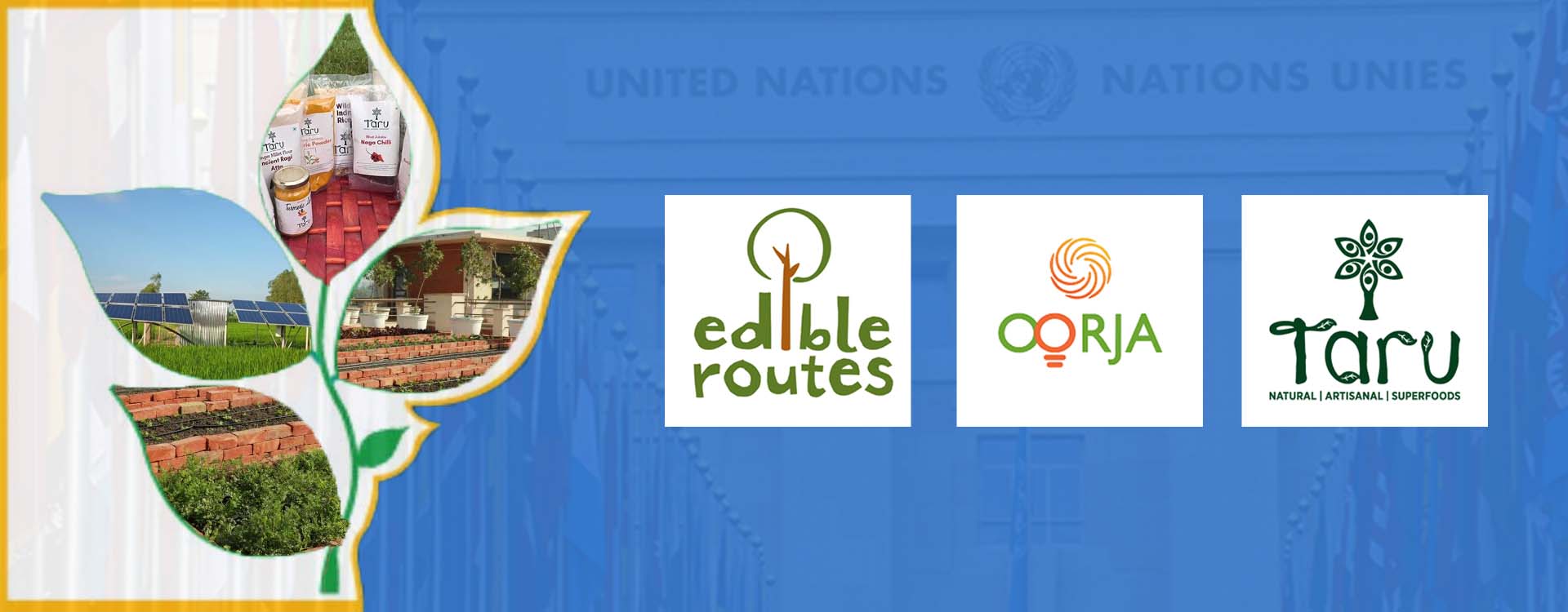Three India-based companies are among the winners of the United Nations’ $100,000 prize competition, promoting businesses with stimulating, diverse and practical solutions to improve healthy and sustainable food access. Fifty small and medium-sized businesses from around the world were recognised as the ‘UN Best Small Business of the Good Food for All’ competition, organised in conjunction with the United Nations Food Systems Summit.
From cafes to agricultural cooperatives, digital start-ups to veterinary clinics, many companies entered the competition. These SMEs proposed new and bold solutions to improve the nutritional system.
UN Best Small Business Award
The United Nations Food Systems Summit ‘Best Small Business: Good Food for All’ competition selects the best small and medium-sized enterprises (SMEs) worldwide that transform the food system for a better future.
‘‘
The competition aims to find out which small businesses have a more sustainable and inclusive food system and how they can support their sustainable business operations.
Selection process for UN Best Small Business
The UN asked small businesses worldwide to find healthy foods that are good for the environment and the community and create jobs for the local population. They were also invited to share ideas and suggestions on how their countries and economies could maximise their positive impact.
Eligibility criteria:
The company may have between 5 and 250 employees and
Businesses need to be involved in some aspects of the food supply chain and value.
The summit highlighted award winners as the “Best 50 Small Businesses: Good Food for All”, and awarded $100,000 in prize money. Being an UN-led initiative, each submission in the event will help inform global leaders of the priorities and resources these businesses require to succeed.
The UN selected each winner for:
How their business provides healthier, more sustainable and affordable food to the communities they serve;
The strength of their future vision; and
How well they communicate about the current and future impact of their business.
Winners from India – who are these SMEs?
The Indian winners are Edible Routes Private Limited, Oorja Development Solutions India and Taru Naturals.
Edible Routes Private Limited
Kapil Mandavewala founded Edible Routes to give customers easy access to natural and local agricultural products. The company’s business model offers delivery in one hour, covering 220 households. It has its own courses and workshops that teach people to grow their own food and become a community-supported agricultural system.
Oorja
Oorja is an agriculture company based on the farming-as-a-service (FaaS) model, which operates at the crossroads between sustainable agriculture and renewable energy. It invests in, installs and maintains agricultural photovoltaic (solar power) systems. It sells irrigation, grinding and cooling tools to farmers to shift from diesel to solar energy. Oorja was founded by Amit Saraogi and Dr. Clementine Chambon and has a team of 18 people in India.
TARU Naturals and Organics
TARU Naturals and Organics was founded by Ruchi Jain and is a grassroots company consisting of 10,000 small and medium-sized farmers in India. It is a fair trade network that connects farmers with markets for healthy, clean and natural products. The company is committed to ensuring the self-sufficiency of all ecosystems in the agricultural value chain. It deals with climate-resilient farms, post-harvest technologies, value-added products and market connections.
Significance of such awards – what can others learn?
Small businesses are the hidden gems of global food systems, managing at least half of the food economies despite crises like the ongoing COVID-19 pandemic. Competitions like ‘Best Small Business: Good Food for All’ and respective acknowledgements help the corporate world and ordinary people understand the challenges small businesses face.
These also push the community to work together towards ensuring such businesses remain at the heart of efforts to improve the future of ground reality and daily life. In this UN Best Small Business event, half of the winners are youth, and nearly half are women; this alone is enough of a booster for the youth and the ‘unconventional groups’ to jump into the business world and help make a positive change.




